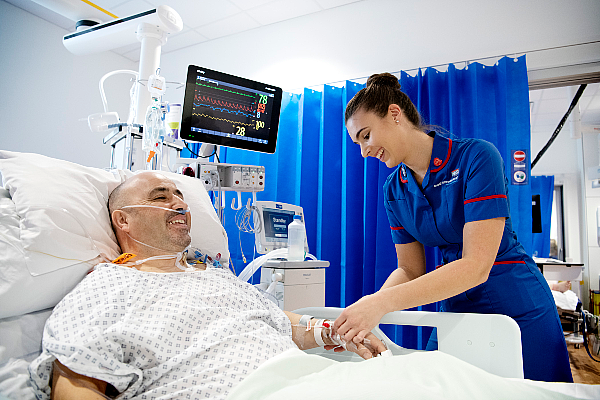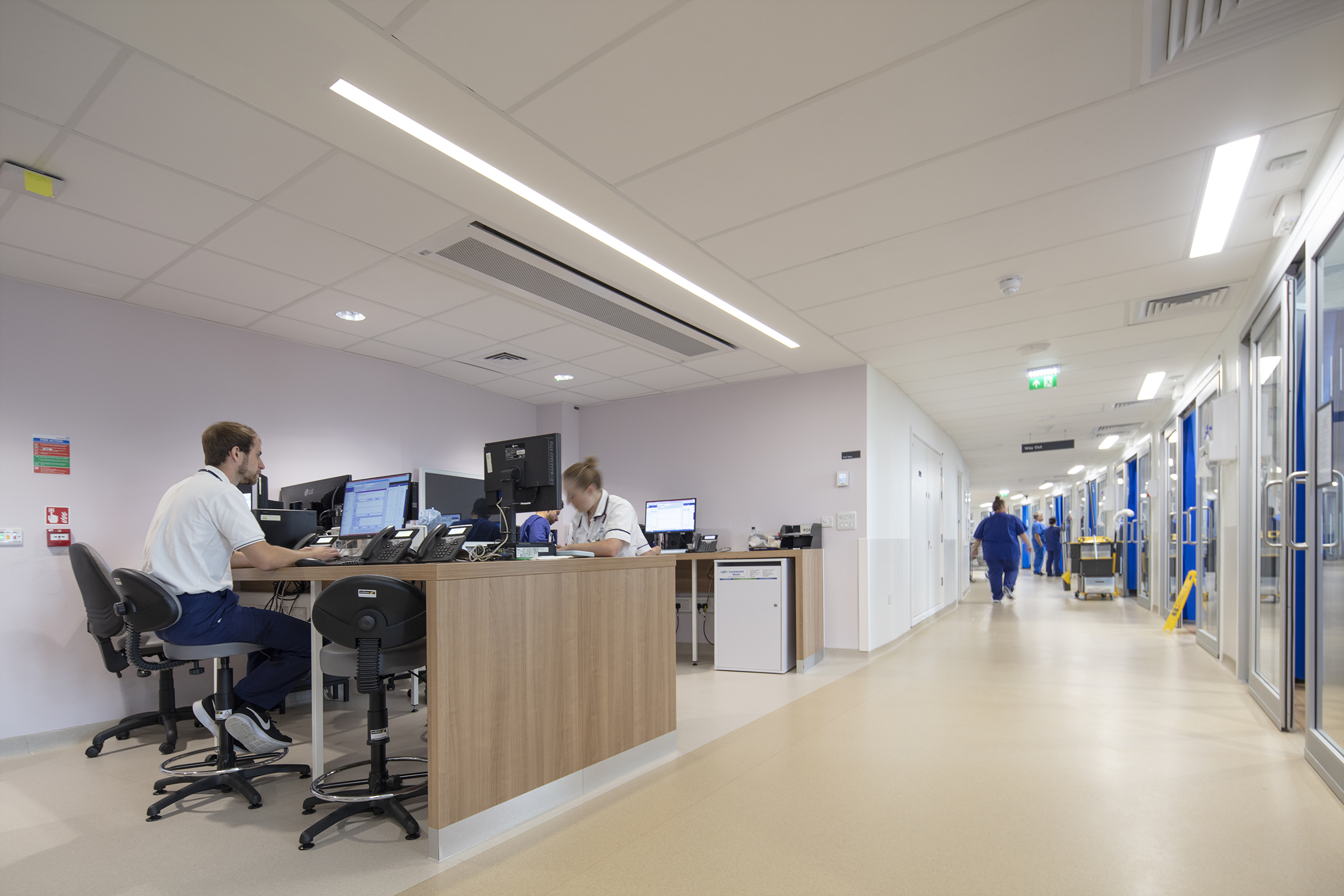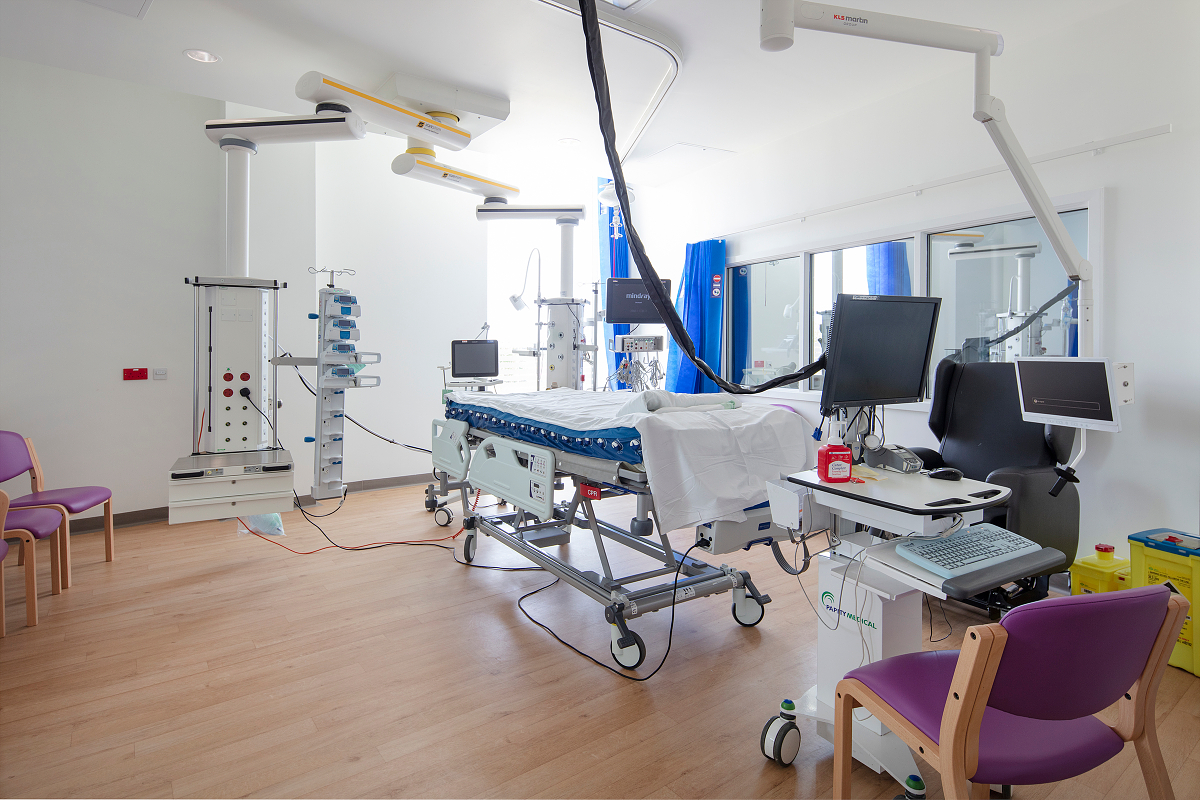Our highly specialised critical care unit provides expert care for patients after cardiac and thoracic surgery. It is also the only UK critical care department to treat people have had pulmonary endarterectomy surgery.
The unit also cares for people awaiting heart transplants who are supported with mechanical heart pumps, called BiVADs. It is one of only five UK ECMO centres commissioned to provide support to patients with acute repiratory failure and treats some people who have been admitted via our emergency heart attack pathways.
Our team is experienced in providing care for the most complex heart and lung patients and frequently admit patients from other hospitals, both within the East of England region and from all around the country.
Our 46-bed critical care unit comprises:
- Ten enhanced recovery unit (ERU) beds, dedicated to the enhanced care and recovery of eligible parents after cardiac surgery. These patients will typically spend fewer than 48 hours in the ERU before being discharged to the surgical ward.
- Twenty-seven critical care beds for patients who are unlikely to be discharged within 48 hours of their operation to the ward, or who require more advanced support.
- As a tertiary and national referral centre, the unit also admits patients needing mechanical support such as extra corpreal membrane oxygenation (ECMO), treatment for heart failure, and following transplant and pulmonary endarterectomy (PEA) surgery. In addition we treat patients with cardiothoracic emergencies, e.g. aortic dissection and chest trauma.
Staff
A nursing team of more than 200 nurses, led by two matrons and 11 sisters / critical care practitioners (CCPs), provide continuous specialist nursing care. Critical care is staffed on an aim of providing a 1:1 nurse to patient ratio, which means each patient will have their own registered nurse with them in their room. However, our ratio of registered nurses (RNs) to patients here at Royal Papworth Hospital is regularly under 1:1, at 0.9:1 or 0.8:1, meaning individualised, bespoke care for each patient.
Alongside our highly-skilled doctors and nurses, our wider team of speciialist physiotherapists, occupational therapists, speech and language therapists, dietitians and scientists provide personalised, patient-centred care.
Medical care is led by dedicated consultant intensivists supported by a multidisciplinary team. This team includes referring and specialist consultants including intensivists and anaesthetists, specialist nurses, healthcare support workers, physiotherapists, pharmacists, dieticians, speech language therapists, occupational therapists.

Each patient in critical care will have their own nurse in the room with them
Design of the unit
The unit is separated into a north and south side, and each of those areas are divided again to form four sections which allows for cohorting of patients with different levels of dependency. The corridors are curved which means no sharp corner or tight turns when transporting a patient within the unit, or into/out of the unit.
Each bed space has a floor-to-ceiling length window allowing plenty of natural light to flood into the room. This is an important feature to help prevent delirium, as are the 24-hour digital clocks in each room.

One of four quadrants of our critical care unit, with single side rooms and curved corridors
Each room is individual with sliding glass doors and curtains separating it from its neighbouring two rooms, which means both privacy for the patient but also an ability for staff to 'break out' into the adjoining room(s) in case of an emergency.
Enhanced ventilation rooms
In addition to the standard bed spaces, our critical care department is also home to a number of enhanced ventilation beds with ante room, which are used to cohort patients with infectious diseases such as tuberculosis (TB) and influenza (flu). This helps to prevent and limit the spread of infections.

An enhanced ventilation room
Critical care teaching team
Our mission is to provide specialist care to people with heart and/or lung disease. We do this through clinical excellence, supported by a culture of continuous improvement and staff education.
Our critical care teaching team consists of experienced critical care nurses and healthcare support workers who are specially trained in supporting staff and students in providing high quality, expert care to our patients and their loved ones.
Our proven curriculum is designed to support staff from a variety of backgrounds and is flexible to meet individual needs, making sure our staff are competent and confident in the latest skills and techniques.
Staff are able to learn in a range of face-to-face study days with support from their peers as well as a new online learning platform and virtual classrooms.
They also support the ongoing learning and professional development of all critical care nursing staff. Working in a continually changing and evolving service, it is important to continually improve and update skills. Most nurses working on critical care go on to further education, completing masters-level critical care courses at a variety of local universities.
We also offer placements to student nurses and nursing associates from local universities as well as elective placements from those further afield.
